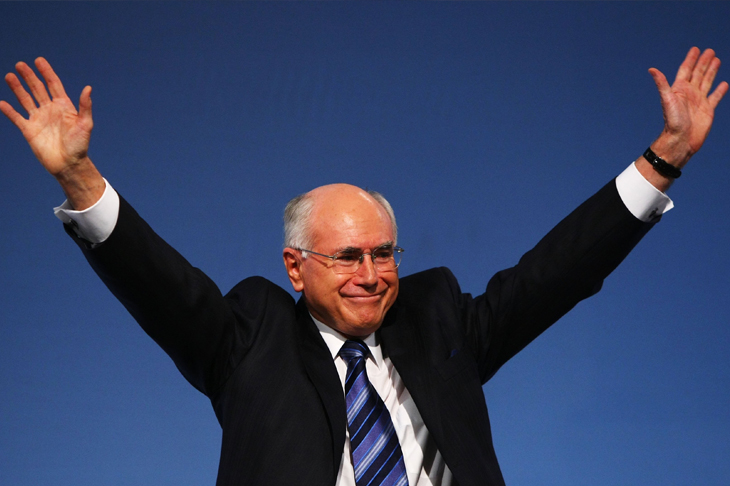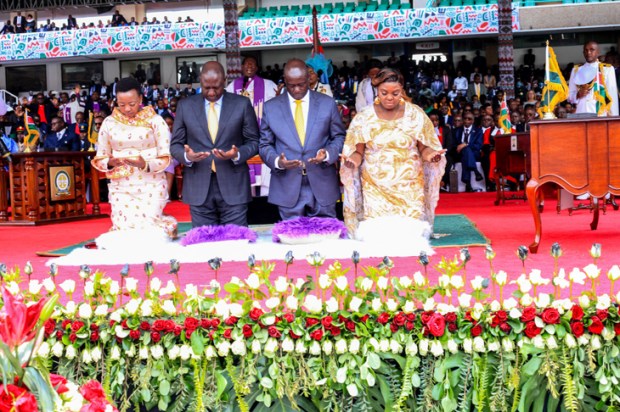Even in parliament, fashions change. I am not referring to the width of lapels, the length of dresses, the style of tie or whether the Speaker wears a gown, although these fashions go through cycles. When Steve Martin was Speaker, his penchant for bright floral and geometric ties was copied by many others in the chamber. There are also inclinations shared by one side or the other: Liberals are more likely to wear blue ties; Labor members red. And some Members of parliament steadfastly cling to a certain style. Bob Katter wears a three-piece suit long after its heyday. Beards, after some time, have also made a comeback. As interesting as these fashions may be, it is another that I am referring to, namely, the style and substance of speeches.
While listening to the maiden speeches of new members over the past few weeks, I was struck by how they differ from the discourses of a generation ago. Now officially referred to as a first speech, although many members still use the historic title, a maiden speech had traditionally provided an opportunity for new members and senators to set out their hopes and ambitions as a member of parliament.
In the past few weeks, the new members have told the story of their individual journeys to parliament. At times the chamber rolled in mirth; on other occasions there was hardly a dry eye in the house as we listened to the struggles and achievements of the class of 2019. All spoke about the special features of their electorate; and many related their experiences to policy aspirations. Without exception, they thanked the many people who had inspired and assisted them. In the past, a new member usually spoke about the bill before the house — or in the case of the Address-in-Reply to the Governor-General’s opening of the Parliament —the new government’s program. Take the maiden speeches of four Prime Ministers.
Robert Menzies spoke on the Address-in-Reply when he made his maiden speech on November 2, 1934. Admittedly, it was not his first parliamentary speech, having served in the Victorian parliament previously. Menzies, who had been appointed the Attorney-General in the Lyons government, considered in some detail provisions of the Conciliation and Arbitration Act, the length of working hours and unemployment. There were a number of interjections to which Menzies responded.
When Gough Whitlam rose in the chamber on March 19, 1953, to deliver his maiden speech, he spoke about the Supply Bill, and in detail about housing needs, citing data and reports. Interrupted by John McEwen, the quick-witted Whitlam recollected that Disraeli, when shouted down during his maiden speech in the House of Commons had said ‘the time will come when you shall hear me,’ adding for McEwen’s sake, ‘the time will come when you may interrupt me,’ a reference to the convention that a maiden speech is heard without interjections. Neither men referred to their past, their family, those who helped them in the election campaign, or even their electorate.
Speaking on the Appropriation Bill on September 26, 1974, John Howard began by acknowledging the work of his distinguished predecessor, Sir John Cramer, who had represented Bennelong from 1949. He spoke about his electorate, and then devoted most of his speech to the Labor party’s budget.
Six years later, on November 26, 1980, Bob Hawke rose in the Old Parliament House to deliver his maiden speech, having spent 22 years with the trade union movement. Hawke devoted his speech to poverty and unemployment, especially youth unemployment. It was a topic that he would return to as PM.
Neither Howard nor Hawke spoke of their family, or of their past in any detail. Hawke made only a passing reference to his electorate. This approach was still very much in vogue when I made my maiden speech on September 5, 1991. Speaking on the Appropriation Bill, I attacked Paul Keating’s budget and Labor’s economic management. In the pattern of the times, there was only a brief mention of my parents and a passing reference to my electorate. I related my previous experiences to policy interests especially industrial relations and health.
As I listened to the recent speeches, I reflected on not only how much they have changed, but how the role of a member of parliament has also altered. MPs of the past regarded themselves primarily as legislators and policy-makers. Today a member is a quasi-counsellor, social welfare worker, immigration agent, advocate and much more. The political language of today reflects the language of the community: identity and sentiment are at the forefront. Emotion trumps rationality.
In the week that many new Members were making their first speeches, another great contributor to the parliament was quietly leaving. David Elder, only the sixteenth Clerk of the House, retired. As a member of the Speaker’s Panel, the group of Members who preside over the chamber for a few hours each week to assist the Speaker, I greatly appreciate the impartiality, knowledge and commitment to parliamentary democracy of the clerks. Apart from ‘reading’ the bills and announcing the business before the House, the clerks are seen but not heard. One at least, Frank Green, who was clerk during the tumultuous years of 1937 to 1955, later wrote a book, Servant of the House, about his time. I have been privileged to work with four clerks, Lyn Barlin, Ian Harris, Bernard Wright and David Elder. Claressa Surtees, brings long experience of the Parliament in her new role as the 17th clerk.
Got something to add? Join the discussion and comment below.
Get 10 issues for just $10
Subscribe to The Spectator Australia today for the next 10 magazine issues, plus full online access, for just $10.
You might disagree with half of it, but you’ll enjoy reading all of it. Try your first month for free, then just $2 a week for the remainder of your first year.














Comments
Don't miss out
Join the conversation with other Spectator Australia readers. Subscribe to leave a comment.
SUBSCRIBEAlready a subscriber? Log in